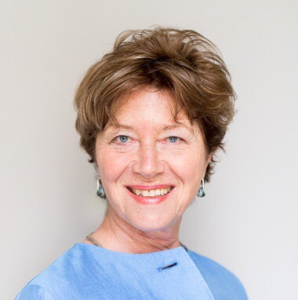My passion for dementia research – Myrra Vernooij-Dassen, chair INTERDEM
 As a medical sociologist I wanted to be a researcher and the first opportunity was a vacancy in research on day-care for people with dementia. I comforted myself by thinking that in case of rejection, I would never have to think about dementia again. I got the job. I wondered what I as a sociologist could contribute to dementia research. The answer came from Luria. He found a discrepancy between brain pathology and symptoms. That exciting information gave room to study other aspects than only brain pathology. I engaged in social network research, but was not satisfied with their focus on morphological aspects. My real inspiration came by two connected theoretical models: the family crisis and family support models of Bengtson and Kuypers. That provided the base for my thesis.
As a medical sociologist I wanted to be a researcher and the first opportunity was a vacancy in research on day-care for people with dementia. I comforted myself by thinking that in case of rejection, I would never have to think about dementia again. I got the job. I wondered what I as a sociologist could contribute to dementia research. The answer came from Luria. He found a discrepancy between brain pathology and symptoms. That exciting information gave room to study other aspects than only brain pathology. I engaged in social network research, but was not satisfied with their focus on morphological aspects. My real inspiration came by two connected theoretical models: the family crisis and family support models of Bengtson and Kuypers. That provided the base for my thesis.
After embarking in dementia research, I did not doubt its relevance for a single day, but I never expected I would benefit so much from my knowledge on dementia. My family- in -law was confronted with profound changes in the behaviour of my mother- in -law and disagreed on its causes. Based on my thesis I recommended a family meeting with an expert. He guided the family in several sessions. Moreover, I learned from a diary of a caregiver that I analysed at that time, that it was possible to share pleasant events and to enjoy daily life. This knowledge contributed to having three very good years with her. Years later this optimism helped us to live with my mother when she got dementia. What helped most was keeping her in her favourite role: being a mother.
My passion for dementia research got a great boost by the brilliant initiative of Esme Moniz-Cook to found INTERDEM. What started as group of researchers that became friends has been developed into the largest and strongest group in psychosocial dementia research worldwide. Together, we take the responsibility to move the field forward by new concepts, manifesto’s, and critical methodological analyses. I personally feel this responsibility even stronger by my membership of the Scientific Advisory Board of JPND. I realised that there cannot be a breakthrough in dementia research without acknowledgment of the role of social sciences in this multifactorial syndrome. The new umbrella concept social health provided the piece in the dementia puzzle that allows to bridge biomedical and social sciences. Social health relates to the influence of social and environmental resources on finding a balance between capacities and limitations. This influence may be crucial in optimally using the plasticity of the brain and may contribute to the explanation of the discrepancy between brain pathology and symptoms. Working on the role of social health in the onset and course of dementia fuels my passion to gain knowledge on this secret of life and to make my contribution to living well with dementia.
Myrra Vernooij-Dassen, chair INTERDEM
